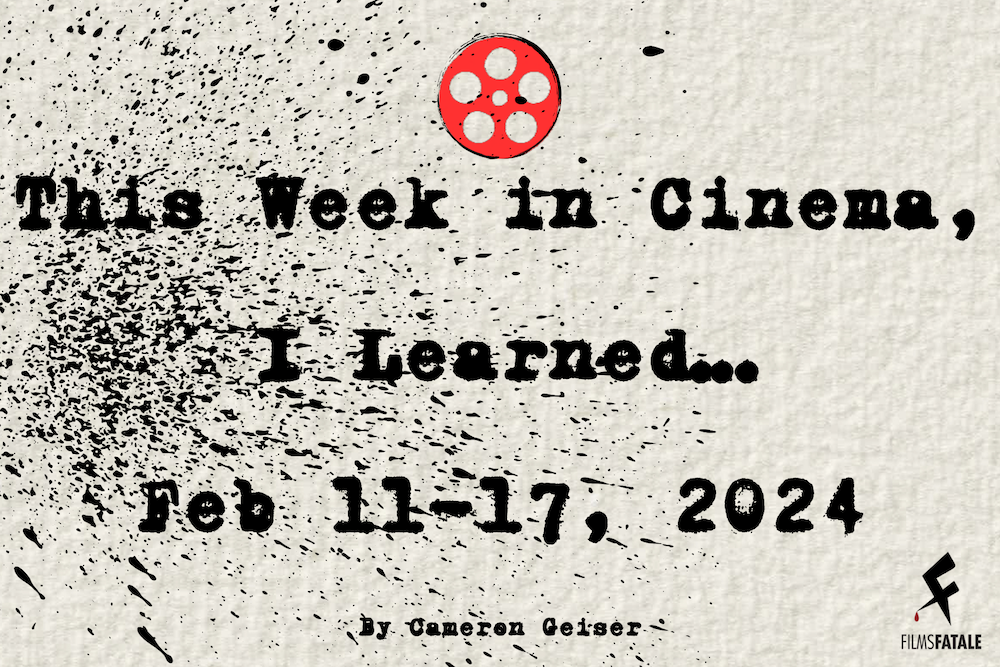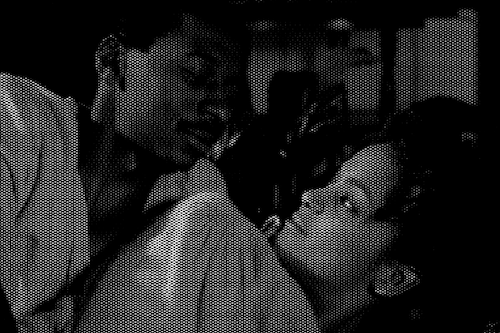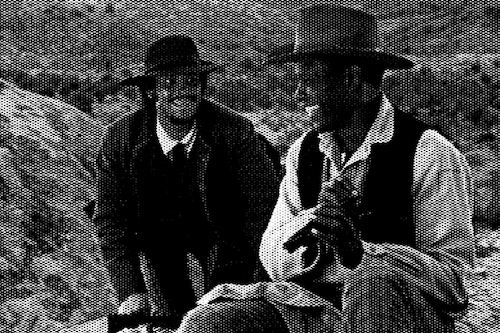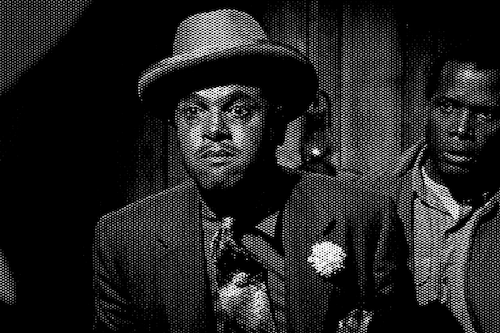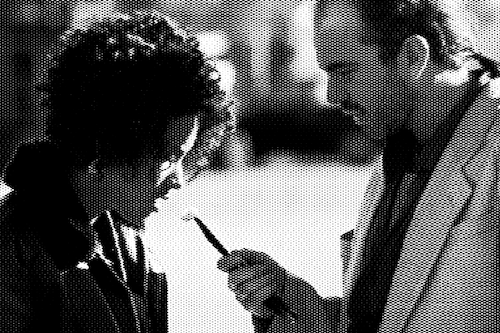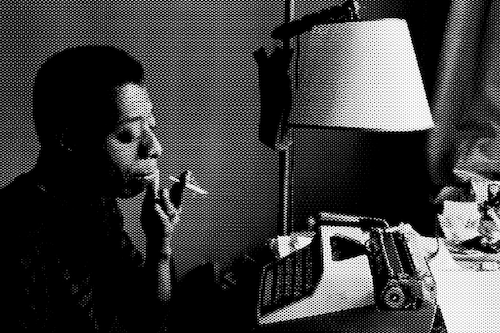This Week in Cinema, I Learned…Feb 11-17 2024
Written by Cameron Geiser
Welcome to This Week in Cinema, a yearlong film criticism project wherein I will be watching a new film that I haven't seen every single day.
This week has a more serious tone than last week’s films. With all due respect to the Blaxploitation films recently discussed, I enjoy them wholeheartedly, but this week’s films have deeper meanings and are more concerned with injustices and complex narratives. There’s also far more history involved with this week’s films, though there are a few diversions in this regard, but every film touches on the crux of being Black in America: trauma. The first half of the week belongs to Sidney Poitier and Harry Belafonte starring in two films directed by Sidney Poitier. Whereas the last half belongs to James Baldwin and Malcolm X. The two films that don’t fit that structure are Hollywood Shuffle and One False Move directed by Robert Townsend and Carl Franklin respectively. Though admittedly Hollywood Shuffle was my favorite film of the week, it was genuinely a film where I found myself connecting to the story and protagonist more than anything else this year. I do have a bias towards films about filmmaking though, and there’s never a better subject within that realm than an underdog with heart trying to break into the industry. This is also the highest-scoring week so far. I always attempt to maintain objectivity and consistency when it comes to scoring a film but these films were uncannily superb and I stand by these scores. A perfect score, to me, is meant to represent pure cinema. Artistic expression unhindered by the myriad of ways a film production can go wrong, or even just off-kilter in any way, shape, or form. Several of these films transcended every hurdle possible and spoke truths about the human experience. I hope you check out these films, yes, you, reading this article, they’re all worth your time and consideration. Well… maybe except for Uptown Saturday Night, you'll find out why below.
February 11th
Hollywood Shuffle (1987)
5/5
This film was an unexpected delight! Occasionally when I see the name of a writer, director, or actor that I was impressed with, I make a mental note to check anything out with that name attached. After watching and loving Chinatown many times over, I attempted to keep the screenwriter's name, Robert Towne, at the forefront of my mind since his script was so damn good. Years later when looking up films for this project, I saw a film title written and directed by Robert Townsend and mistakenly thought the two were one and the same. I am so glad I mistook the name and sought out this film because Robert Townsend's Hollywood Shuffle is one of my new favorite films. Truthfully, the story of how he made this film is also worth knowing, but that's simply my recommendation to dig into that as well. Hollywood Shuffle is about a well-worn path in those Hollywood hills. The merry-go-round of waiting tables, going to auditions, making ends meet with one or more low-wage jobs just to get to the next monologue, the next chance at stardom.
The main storyline follows Bobby Taylor (Robert Townsend) as he finally gets a callback for a lead role that's disappointingly a racial stereotype that only plays into negative cliches about the Black community. He eventually walks off set, disillusioned by the reality of a Hollywood production. Before and after this scene the film is structured around skits imagined by Bobby Taylor where he dreams of himself and others being involved in amalgamations of big blockbuster films like Rambo: First Blood (Rambro: First Young Blood), Indiana Jones (Chicago Jones), and Dirty Harry (Dirty Larry). Though my favorite skit was called Sneakin in the movies which was a direct inversion of Siskel and Ebert where they covered various recreations where they would give it a thumbs up, down, or even the bird. However, the best scene was one where Bobby Taylor’s Uncle Ray (David McKnight) gave a speech about giving it your all and struggling for success even when you can’t see the way forward. It's good stuff, check it out!
February 12th
Buck and The Preacher (1972)
4.5/5
Sidney Poitier's directorial debut turned out to be easily one of the finest Westerns I've seen in years! Set in the 1860s not long after the Civil War's end, Buck (Sidney Poitier) is a wagoneer leading groups of Black families out of Louisiana who want to travel north to Colorado and Kansas. Buck must make deals with the various Native American tribes for passage through their lands, and attempt to ward off any other travelers possessing ill will. Preacher (Harry Belafonte) happens to be a roaming man of God, well, when it benefits him to be one. After Buck's home is raided by a band of white men hired by Plantation owners trying to scare back former slaves, he ends up stumbling across Preacher attempting to bathe in a river. As he's being pursued by these raiders, led by a terrifically evil Cameron Mitchell as “Deshay”, Buck switches horses with Preacher at gunpoint and rides off. As you might imagine, this quite irks Preacher and once they spot each other in the next town he immediately knocks Buck on his back. Once Preacher bears witness to the horrors of what Deshay and his gang are trying to do, he decides to work with Buck against these psychopaths, and they are indeed psychotic. Throughout the film I was constantly getting Spaghetti Western vibes, I loved the fact that the production was committed to shooting on location, some of the moving shots pairing speed with the characters on horseback was particularly impressive, and its purely excellent cinematography for the whole of the runtime. Obviously, the acting was superb, but I was also impressed with the scripting. Everyone involved with this film clearly loved Westerns, and I hope one day Buck and The Preacher will be spoken in the same breath as Butch Cassidy and The Sundance Kid- it's just that good.
February 13th
Uptown Saturday Night (1974)
3/5
Uptown Saturday Night is a “fine” movie, but even as I write this several days after watching it, I struggle to recall the film overall. Meaning that while the film wasn’t explicitly bad or awful, it was certainly forgettable. Unfortunately, there’s also the inclusion of Bill Cosby as one of the two leads, which is a complicated matter now that we know what we know about him on the scales of morality. Though the film was directed by and stars Sidney Poitier, so, I figured I’d give it a shot and muddle through the Cosby portions. The quick version of the story is that while Steve Jackson (Sidney Poitier) and Wardell Franklin (Bill Cosby) are out at a fancy Black nightclub and on a hot streak, the place is robbed by masked gunmen. The next morning Steve realizes that he has the winning lottery ticket- but it’s in his wallet which was taken during the holdup. Thus it’s up to Steve and Wardell to hunt down the wallet and claim their prize.
They run into a plethora of con artists and affable dead-beats including a near unrecognizable young Richard Pryor as “Sharp Eye Washington” a down-on-his-luck private eye who immediately takes their money and runs off with it, only to be apprehended immediately. The rest of the rogues gallery are essentially all the same idea, hypocritical men in places of power who are only out to gain for themselves. Though the standout of these roles is Harry Belafonte’s Geechie Dan Beauford, who is essentially a more cartoonish, Marlon Brando-esque, gangster. Uptown Saturday Night is a perfectly acceptable way to pass a couple hours, but it may not stick with you for very long.
February 14th
One False Move (1991)
4/5
The second directorial debut this week belongs to filmmaker Carl Franklin. I've only seen his Noir film Devil in a Blue Dress before this, and you can see how his talent as a director evolved between these two films. One False Move is a strong first film, it is moody, well shot with inventive camera movements, and it's a film that's well aware of its subtexts. Billy Bob Thornton (Who also co-wrote the film) stars as Ray, and he is believably disgusting as the head of a trio of small-time criminals that fuel the plot of One False Move. The trio committed six murders over a night in Los Angeles as they scored a big duffle bag of cocaine they planned to sell in Houston, Texas. The other two are Fantasia (Cynda Williams), Ray's girl, and the only character to get an interesting backstory of the three. While the last one is the brains of the group, Pluto (Michael Beach), the only one to remain calm and collected when things get dicey. While the cohort of criminals is heading east a pair of LAPD detectives are assigned to the case and have it on good authority that the three might be heading to Star City, Arkansas. This is where we find Dale 'Hurricane' Dixon played by the late Bill Paxton. Eventually, things do indeed come to a violent conclusion in Star City with an abrupt, explosive, and brutal end scene. One False Move was an interesting thriller, it was certainly darker and more violent than I expected, but it's worth a watch.
February 15th
I am Not Your Negro (2016)
4.5/5
The second documentary to be featured on This Week in Cinema, I Am Not Your Negro, is a powerhouse of confronting the uncomfortable truth of American life as James Baldwin saw it. The doc uses archival footage of the many interviews and audio recordings of James Baldwin's thoughts and opinions surrounding the Black Americans’ daily struggles in a poignant and striking analysis of the many injustices inherent in how America has handled society since the Civil War's end (poorly). It also uses Baldwin's unfinished manuscript Remember This House, which Samuel L Jackson narrates throughout the film as well. The major structure of the doc, besides being broadly biographical to Baldwin as well, focuses on the deaths of three of his friends and contemporaries who were all murdered within five years of each other. Baldwin’s perspective on the deaths of Medgar Evers, Malcolm X, and Martin Luther King Jr. is somber, reflective, and deeply sorrowful. I was also struck by the many film references he made within the first section of the film, it alluded to the broader scope of a conversation that the doc wanted to (and does!) discuss. It's a conversation we should all want to be a part of.
February 16th
If Beale Street Could Talk (2018)
5/5
This is a film that feels as though Barry Jenkins was daring himself to outdo his Oscar-winning film Moonlight. I am ready to crown him the king of romance at this point because this film is so damn beautiful. And I mean that in every sense of the word. From the color grading to the set design, the non-linear editing, or the sumptuous cinematography- If Beale Street Could Talk is thoroughly rich in narrative and romantic tension. As an adaptation of the James Baldwin novel, well, the pairing of writer and director here is sublime. While the ensemble cast involved is a wondrous thing to behold, the story belongs to Tish Rivers (KiKi Layne) and Alonzo 'Fonny' Hunt (Stephan James). As we get the details out of order, we're not initially aware of the circumstances that landed Alonzo in prison with his young lover Tish pregnant on the outside. We are slowly given not only the unfortunate realities of the prison system but also the joyous moments of love and familial connection. Tish's family is the true backbone of the film as they support the young mother-to-be in her struggles while also seeking justice for Alonzo when the facts of his incarceration don't line up. Regina King stars as Tish’s Mother, who flies to Puerto Rico herself to confront the woman that accused her son-in-law of rape and Colman Domingo pairs alongside her as the sturdy father figure that will get results for his family or die trying. There are also noteworthy performances from Brian Tyree Henry and Michael Beach in smaller roles that pack a punch.
February 17th
MalcoLm X (1992)
5/5
As someone who didn't really know all that much about Malcolm X before watching this film, I am very happy to have taken the time to sit down for this three-hour and fifteen-minute biographical epic. I've enjoyed Spike Lee's films quite a lot over the years, but this one is special. In fact, I just looked up the Academy Awards of 1993 just to see if Malcolm X was nominated. At least Denzel Washington was nominated for Best Actor- but how is it possible that Spike Lee wasn't nominated for Best Director for this? That's insane to me. Though I thought he should have won Best Director for Da 5 Bloods too, which by the way, watch that movie if you haven't, it's excellent. Anyways, this film takes great effort to make sense of the titular national figure, how he came to be who he was, and how he changed over the course of his life. The thing that struck me most throughout the film is that, damn, Spike Lee knows his movies. The earlier portions of the film that focus on Malcolm's early days are shot like golden Hollywood-era filmmaking and the film evolves as does the character over time, slowly getting more abstract and tightly controlled. I could go on and on, but trust me, this is a very fine film, and if you haven't seen it, watch it.
Cameron Geiser is an avid consumer of films and books about filmmakers. He'll watch any film at least once, and can usually be spotted at the annual Traverse City Film Festival in Northern Michigan. He also writes about film over at www.spacecortezwrites.com.

